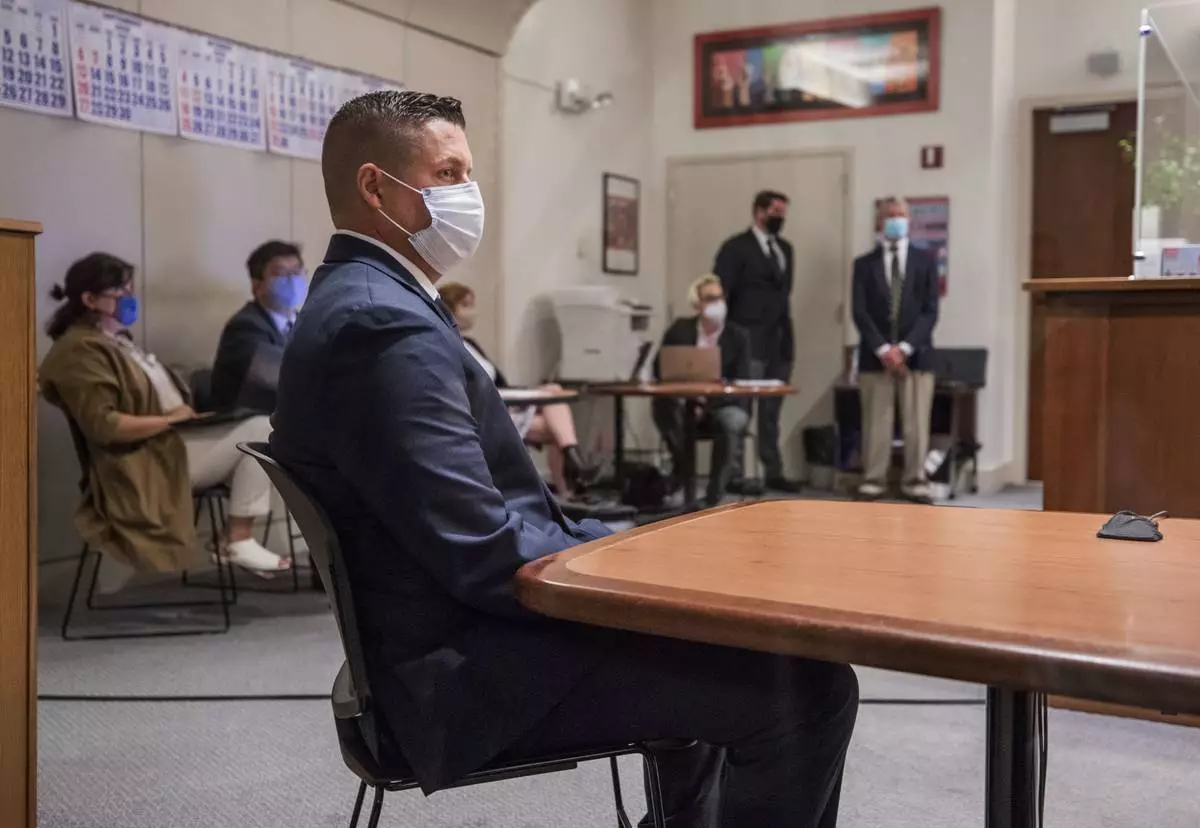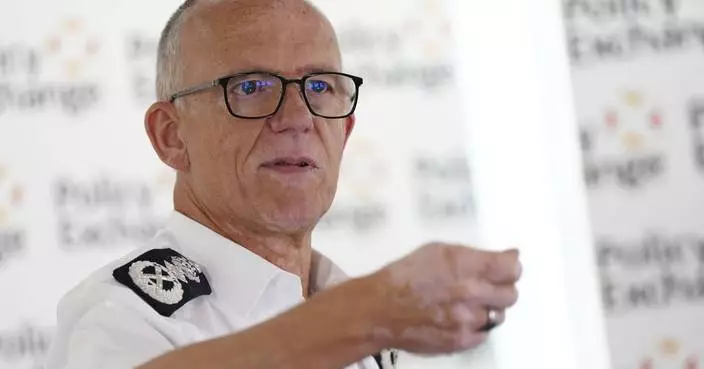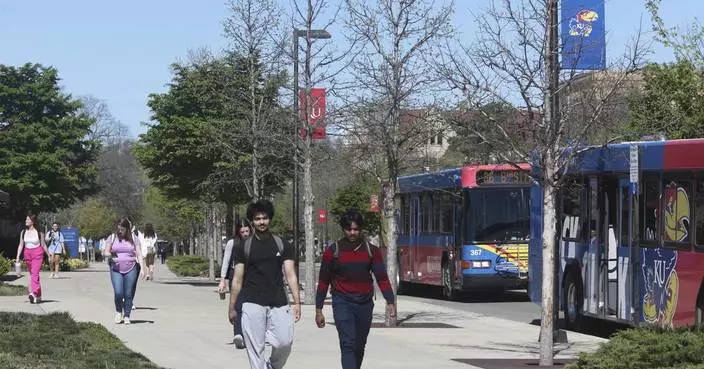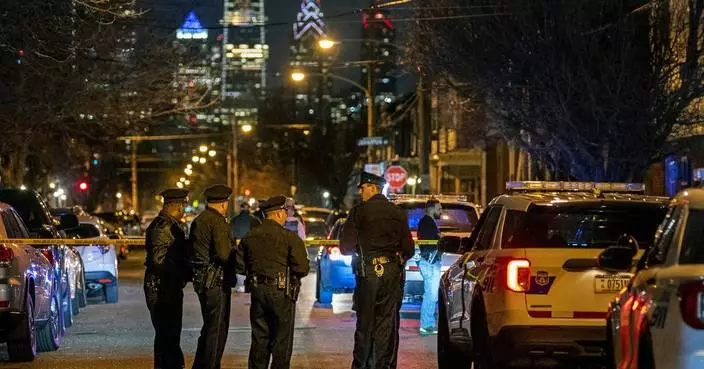Alfie Bell called 999 from his room after arguing with his mother because he wanted to go to the park and meet his friends.
A seven-year-old undergoing 12 weeks of isolation called the police on his mother for not letting him out to play.
Alfie Bell is in the highest risk category for coronavirus due to complex health issues, so he and his mother Stephanie are facing three months of self-isolation in Fallin, Stirling.
The primary school pupil has Crohn’s disease and is immunosuppressed.
He normally receives injections every week to guard against infection as even catching chickenpox could prove fatal.
Medical staff told Ms Bell her son should only be allowed to play on his trampoline in the garden for five minutes twice a day and no-one should be allowed in the house.
Alfie decided the restrictions were too much and called 999 from his room to report his mother to the police.
Posting on social media about the surprise call, she joked they were “failing miserably at isolation”.
Ms Bell said she had no idea what was going on when two police officers turned up at her door on Thursday afternoon.
She told the PA news agency: “It’s only me and my son in the house and we are kind of getting a bit sick of each other’s company.
“He got up on Thursday and said ‘I’m going to the park’ and he was going to see his friends. I said: ‘No, you’re not going anywhere, there’s a bad bug outside and you can’t go out’.
“We had a full-scale argument, he was standing and shouting, and said he was going to go up the stairs.
“Five or six minutes later he came back down and then I heard this almighty bang at the door.
“I got up and there were two policemen standing in the garden.
“They were like: ‘What’s happening here, what’s wrong?’ and I said: ‘You tell me, you’re at my door’.”
The officer said they had a missed call from a mobile number registered to her address and were sent out.
Ms Bell realised her son must have called from the mobile he was given for his birthday last month.
She said: “I shouted him and he ran up the stairs. When I asked why he called them, he said: ‘So you can go to the jail because you’re not letting me out to play’.
“What’s happened is he attempted to phone the police because I wasn’t letting him out to play. The phone has been temporarily confiscated.”
The child health and social care student said her son had earlier taken to sitting on a chair looking out the window since he missed seeing people but locals have rallied round, including handing in craft material so he can play noughts and crosses through the window.
She said: “For eight days we really didn’t see another human but after I put the picture up on Facebook we’ve had people at the window and waving and putting things through the door. It’s a great wee community.”
A Police Scotland spokesman said: “Officers performed a welfare check at an address in Stirling around 4.50pm on Thursday, March 26, following an abandoned emergency call.”
SEATTLE (AP) — Jury selection began Monday in the trial of a suburban Seattle police officer charged with murder in the death of a 26-year-old man outside a convenience store in 2019 — the third person the officer had killed in the past eight years.
Auburn officer Jeff Nelson shot and killed Jesse Sarey while trying to arrest him for disorderly conduct in an interaction that lasted just 67 seconds, authorities said. Sarey had reportedly been throwing things at cars.
Citing surveillance video from nearby businesses, prosecutors said Nelson wrestled with Sarey, repeatedly punched him in the head and shot him twice. As Sarey was wounded and reclined on the ground from the first shot, which struck his upper abdomen, Nelson cleared a jammed round out of his gun, glanced at a nearby witness, turned back to Sarey and shot him again — this time in the forehead, prosecutors said.
The case is the second to go to trial since Washington voters in 2018 made it easier to charge police by removing a standard that required prosecutors to prove they acted with malice; now, prosecutors must show that the level of force was unreasonable or unnecessary. In December, voters acquitted three Tacoma police officers in the 2020 death of Manuel Ellis.
Nelson later said in a written statement that he believed Sarey had a knife and posed a threat before the first shot — and that Sarey was on his knees in a “squatting fashion … ready to spring forward” before the officer fired again. He has pleaded not guilty to charges of second-degree murder and first-degree assault.
An Iraq war veteran, Nelson joined the department in 2008.
The city of Auburn paid Sarey’s family $4 million to settle a civil rights claim and has paid nearly $2 million more to settle other litigation over Nelson’s actions as a police officer.
The trial, before King County Superior Court Judge Nicole Gaines Phelps at the Norm Maleng Regional Justice Center in Kent, is expected to last several weeks. Gaines has ruled that jurors will not hear evidence about Nelson’s prior uses of deadly force or about Sarey’s history of drug use.
In one of those earlier cases, the city of Auburn agreed to pay $1.25 million to the family of a different man killed by Nelson, Isaiah Obet.
Obet had been reportedly breaking into houses and attempting to carry out a carjacking with a knife when Nelson confronted him in 2017. Nelson released his police dog, which bit Obet, and then shot the man in the torso. Obet, on the ground and still fighting off the police dog, started to try to get back up, and Nelson shot him again, in the head, police said.
Lawyers for Obet’s family said he posed no threat to anyone when he was shot. The Auburn Police Department disagreed.
“If Officer Nelson had not acted that day to protect the community, there could have been additional victims,” then-Police Chief Dan O’Neil said in a Facebook post after the family sued.
Nelson also shot and killed Brian Scaman, a Vietnam veteran with mental issues and a history of felonies, in 2011 after pulling Scaman over for a burned-out headlight. Scaman got out of his car with a knife and refused to drop it; Nelson shot him in the head. An inquest jury cleared Nelson of any wrongdoing.
In another case, Nelson used his patrol car in 2018 to strike Joseph Loren Allen, a man suspected of being a felon in possession of a firearm who was running away from police. At the time Nelson struck him, pinning him against a fence and breaking both his ankles, Allen was neither armed nor posing a threat to anyone, Allen's lawyer argued.
The lawyer, Mohammad Hamoudi, compiled a summary of Nelson's uses of force and filed it in federal court. It noted about three dozen times between 2012 and 2018 when Nelson sent his police dog after suspects and about a dozen times when he used neck restraint holds to render suspects unconscious.
The Washington State Criminal Justice Training Commission, which oversees the certification of police in the state, has moved to discipline and possibly revoke Nelson’s badge, saying he has shown a pattern of “an intentional or reckless disregard for the rights of others.”

FILE - Auburn police officer Jeff Nelson appears in King County Superior Court, Aug. 24, 2020, in Kent, Wash. Jury selection began Monday, April 22, 2024, in the trial of the suburban Seattle police officer charged with murder in the death of a 26-year-old man outside a convenience store in 2019. (Steve Ringman/The Seattle Times via AP, File)










